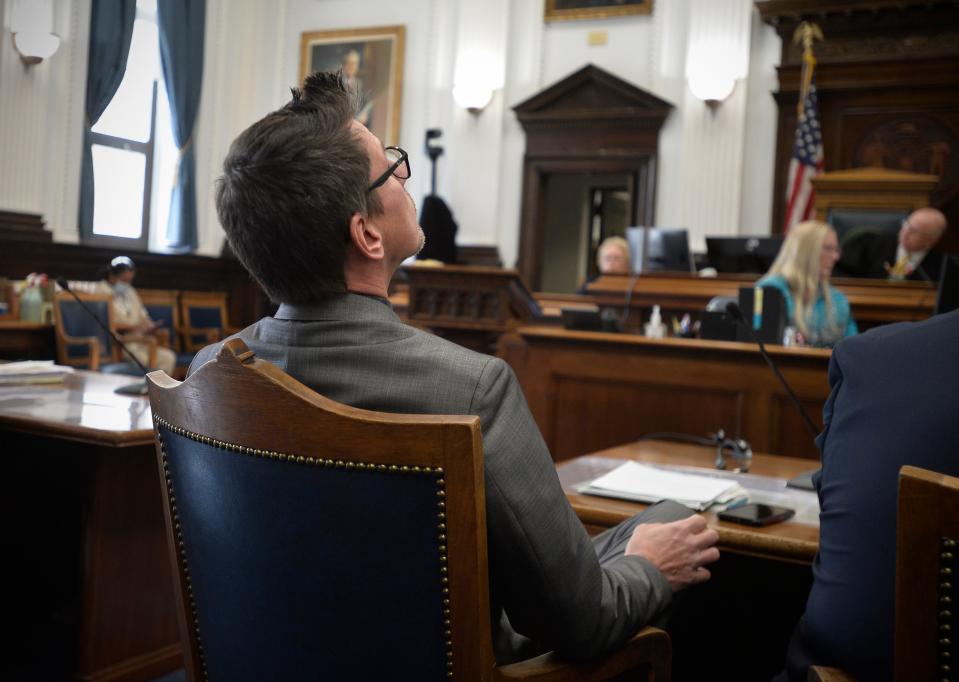The Kyle Rittenhouse verdict, explained: 'If you believe him when he says self-defense, then you have to acquit him'
The jurors who cleared Kyle Rittenhouse on the five charges against him – ranging from intentional homicide to reckless homicide to reckless endangerment – haven't spoken publicly.
If and when they do, they'll probably be asked: Where did they find reasonable doubt?
But that's the wrong question, civil rights attorney Jamie White told USA TODAY after the Illinois teen was found not guilty Friday in a polarizing case that further split America along political and racial lines more than a year after he shot three men, two fatally, during a night of protests last year in Kenosha, Wisconsin.
“They didn’t have to come up with reasonable doubt,” said White, a Michigan-based criminal defense attorney who has represented dozens of sexual abuse victims in high-profile cases involving the Boy Scouts of America and Larry Nassar, the disgraced former doctor for the U.S. women's gymnastics team. “They never got there. It was all about: Was he (Rittenhouse) acting reasonably at the time of the shootings?”
The "reasonable doubt was self-defense," contended Lara Yeretsian, a veteran criminal defense attorney based in Los Angeles.
“If you’ve got them convinced of self-defense, if you’ve got them to believe that everything he did was to defend his life and his life was at risk, that if he wouldn’t have shot those men he’d be dead himself – that’s it,” said Yeretsian, who has defended high-profile clients such as Michael Jackson and Scott Peterson.
Kyle Rittenhouse verdict reactions: From 'Justice system broken' to 'Justice system worked'
“As far as his testimony goes, the jurors clearly found him credible, and that in itself is huge," she said. "If you believe him when he says self-defense, then you have to acquit him.”
Other legal experts also expressed little surprise with the verdict
"I think that anyone who saw the evidence could see that the jury might have a difficult time coming to a unanimous decision that Kyle Rittenhouse wasn't defending himself," Julius Kim, a Wisconsin defense attorney and former prosecutor, told NPR.

"They were not deciding here who do they believe more. They were deciding a very specific legal question: Do they think the prosecutors proved beyond a reasonable doubt that it wasn't self-defense?" ABC chief legal analyst Dan Abrams said on "World News Tonight," adding that he believed videos of the shootings had a significant influence on the jury.
Prosecutor Thomas Binger didn't help the state's case, legal experts told USA TODAY.
While White, who acknowledged he didn’t have access to all the evidence, said he "wasn’t impressed at all by the prosecutor," he did agree with Binger's argument to the jury that “when you talk about self-defense, it has to be proportionate – and using a semi-automatic rifle on someone who’s kicking you or hitting you with a skateboard is not proportionate."
“If anything was going to turn the table, I thought it was going to be that argument: that you can’t bring a gun to a fistfight," White said. "But in this case, the jury ruled that you could.”

These were Kyle Rittenhouse's shooting victims: Anthony Huber, Joseph Rosenbaum, Gaige Grosskreutz
Binger's inability to sway the jury on proportionate use of force was a pivotal moment in a trial that began with him already facing "an uphill battle," Yeretsian told USA TODAY.
"Even the prosecution’s witnesses, they were supporting the defense’s argument – when the one survivor testified that he pointed his gun at Rittenhouse and that’s when Rittenhouse shot him, that gives the jury enough," she said.
Putting Rittenhouse on the stand, Yeretsian said, was “risky but the right move, especially in a trial with the entire nation watching it.” Rittenhouse’s emotional testimony – he cried at one point – worked in his favor, she said.
“He’s got this baby face, he shed some tears, that could pull at some heartstrings – defense attorneys count on those things,” Yeretsian said. “But other than the few moments of crying and him being emotional, he was pretty calm and able to explain his side. He came across as credible.”
She added that the jury "bought the self-defense argument, and that’s really the bottom line.”
This article originally appeared on USA TODAY: Kyle Rittenhouse verdict: Jury 'bought' self-defense case, experts say

 money
money 